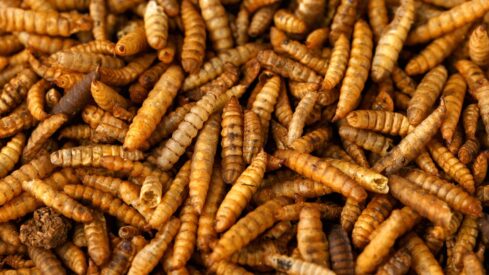Karolina Hołda
Bring on the bugs: the case for insect protein
Low-calorie pet treats to tackle pet obesity
The pet treats category is on the rise – but so is the number of obese and overweight dogs and cats. This has created a need for healthier, low-calorie alternatives to traditional pet treats.
The benefits of flaxseed and other oils
Vegetable and nut oils provide essential nutrients but need to be used in the right amounts.
Can bone broth live up to the expectations?
There is increased demand for bone broths in the pet food market, but are the expectations in line with scientific findings?
Not all fat is ketogenic
The ketogenic diet is often advertised as having health benefits for dogs, despite physiological differences between people and pets. What does the research say, and why is MCT oil essential?
Pet food for thought
Pet owners’ desire to feed their pets human quality food with high meat content and their wish to feed more ethically and sustainably are seemingly at odds. New approaches are emerging that could resolve this tension.
The benefits of wet food in a cat’s diet
Wet food can play an important role in improving our cat's health, contributing to fewer veterinary visits over the pet’s life.
Addressing the moral dilemma pet owners face
The number of people opting for a vegan lifestyle is booming, especially among the millennials. As they increasingly seek to feed their pets a plant-based diet too, what are the ethical and environmental issues?
Insects, algae and krill as alternative protein sources in snacks and treats
Pet treat companies are looking into new and exciting protein sources and ingredients. But will customers be provided with sustainable proteins in a way that respects planetary boundaries?
Tailored food for kittens and puppies
As pet owners are becoming increasingly aware of nutritional needs of their baby pets, the pet food market is being shaped to cater to this new trend.









